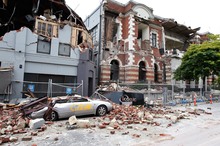Thanks Davo - ok I understand that the NBS is different for different building use and areas - BUT I still do not get what lets say the 33% refers to what.
Yes I know 33% of the NBS but is it related to the magnitude of the earthquake?
Yes I know 33% of the NBS but is it related to the magnitude of the earthquake?



Comment